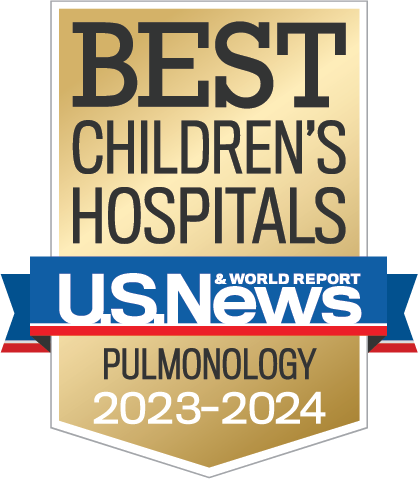- Doctors & Departments
-
Conditions & Advice
- Overview
- Conditions and Symptoms
- Symptom Checker
- Parent Resources
- The Connection Journey
- Calm A Crying Baby
- Sports Articles
- Dosage Tables
- Baby Guide
-
Your Visit
- Overview
- Prepare for Your Visit
- Your Overnight Stay
- Send a Cheer Card
- Family and Patient Resources
- Patient Cost Estimate
- Insurance and Financial Resources
- Online Bill Pay
- Medical Records
- Policies and Procedures
- We Ask Because We Care
Click to find the locations nearest youFind locations by region
See all locations -
Community
- Overview
- Addressing the Youth Mental Health Crisis
- Calendar of Events
- Child Health Advocacy
- Community Health
- Community Partners
- Corporate Relations
- Global Health
- Patient Advocacy
- Patient Stories
- Pediatric Affiliations
- Support Children’s Colorado
- Specialty Outreach Clinics
Your Support Matters
Upcoming Events
Child Life 101
Wednesday, June 12, 2024Join us to learn about the work of a child life specialist, including...
-
Research & Innovation
- Overview
- Pediatric Clinical Trials
- Q: Pediatric Health Advances
- Discoveries and Milestones
- Training and Internships
- Academic Affiliation
- Investigator Resources
- Funding Opportunities
- Center For Innovation
- Support Our Research
- Research Areas

It starts with a Q:
For the latest cutting-edge research, innovative collaborations and remarkable discoveries in child health, read stories from across all our areas of study in Q: Advances and Answers in Pediatric Health.

Children's Hospital Colorado Children’s Interstitial Lung Disease (chILD) Program is one of the leading referral centers in the world for children with these rare lung conditions. Research in our hospital and in collaboration with other pediatric ILD centers around the country has led to the recognition and understanding of many new chILD disorders.
One of the most important and challenging aspects of chILD is to get the correct diagnosis through sometimes necessary testing. Our center is world renowned for our diagnostic ability and testing facilities, and provides consultation to patients and health care providers around the world.
Why choose Children’s Colorado for the treatment of this condition?
Our physicians are leaders in the National chILD Research Collaborative, which consists of pediatric lung, pathology and radiology specialists in North America who are committed to improving care for children with these conditions. The Children's Colorado chILD Program has advanced testing programs in ILD for children related to CT scans, infant pulmonary function testing, bronchoscopy (.pdf) and lung biopsies, when needed. Our physicians have grants to study and find new treatments and cures for chILD.
Our multidisciplinary care team of pediatric lung specialists, pathologists, radiologists, nutritionists, social workers and nurse specialists brings a wide range of experience and expertise. Our goal is to create the most individualized ILD care plan possible for your child and family. Multidisciplinary care is critical to meet the needs of patients with these complex conditions.
We also provide resources for healthcare professionals who diagnose and treat chILD.
Specific conditions we treat
The Children's Colorado chILD Program provides care for a broad range of lung disorders including:
- Disorders more prevalent in infancy, like surfactant disorders
- Disorders associated with a normal immune system and response to infections
- Disorders related to body-wide processes
- Disorders associated with a weakened immune system like opportunistic infections
- Disorders that resemble interstitial disease
Disorders more common in infancy
- Diffuse developmental (abnormal lung formation) disorders
- Growth Abnormalities
- Specific conditions of unknown or poorly understood origin
The reasons that these conditions develop are currently unknown, but they have quite specific diagnostic criteria: - Surfactant Dysfunction Mutations and Related Abnormalities
Some of these disorders are more specific to infancy, while others have also been identified in older children and adults.
Disorders associated with a normal immune system
- Infectious and post-infectious processes
- Disorders related to environmental agents, including hypersensitivity pneumonia (caused by exposure to toxic particles like bird feces or hot tubs)
- Toxic Inhalation
- Aspiration syndromes
- Eosinophilic pneumonias
- Acute interstitial pneumonia/Hamman-Rich syndrome/Idiopathic diffuse alveolar damage
- Nonspecific interstitial pneumonia
- Idiopathic pulmonary hemosiderosis (bleeding in the lung)
Disorders related to body-wide processes
- Storage Disease
- Sarcoidosis
- Langerhans Cell Histiocytosis
- Malignant Infiltrates
- Immune-mediated Disorders
Disorders associated with a weakened immune system
- Opportunistic infections
- Disorders related to therapies like radiation and chemotherapy
- Disorders related to solid organ, lung and bone marrow transplantation and rejection syndromes
- Diffuse Alveolar Damage (DAD) of undetermined cause
- Lymphoid infiltrates related to immune compromise (for non-transplanted patients)
Disorders that resemble interstitial disease
- Arterial hypertensive vasculopathy
- Congestive vasculopathy including veno-occlusive disease
- Lymphatic disorders, including lymphangiectasis and lymphangiomatosis
- Pulmonary edema
- Thromboembolic
Services offered
Our advanced medical equipment and state-of-the art hospital provide for diagnostic tests including:
- Infant pulmonary function testing (.pdf)
- Bronchoscopy (.pdf)
- Advanced CT scan protocols that limit radiation
- Combined procedures to reduce anesthesia exposures
- New blood tests to understand the disease and treatments
- Chest imaging (high-resolution CT scan)
- Lung biopsies done by one of the most experienced teams in the country
Many different types of medications may be used to treat chILD. These medications are frequently delivered by a device to deposit the medication in your lungs.

Compassionate care, wherever you are
We’re here when you need us. Telehealth appointments are available across every specialty, so you can get the high-quality care we’ve always offered from the comfort, privacy and convenience of home.
See if telehealth is right for you
Get to know our pediatric experts.

Naomi Miyazawa, PA-C
Physician Assistant

Robin Deterding, MD
Pulmonology - Pediatric



